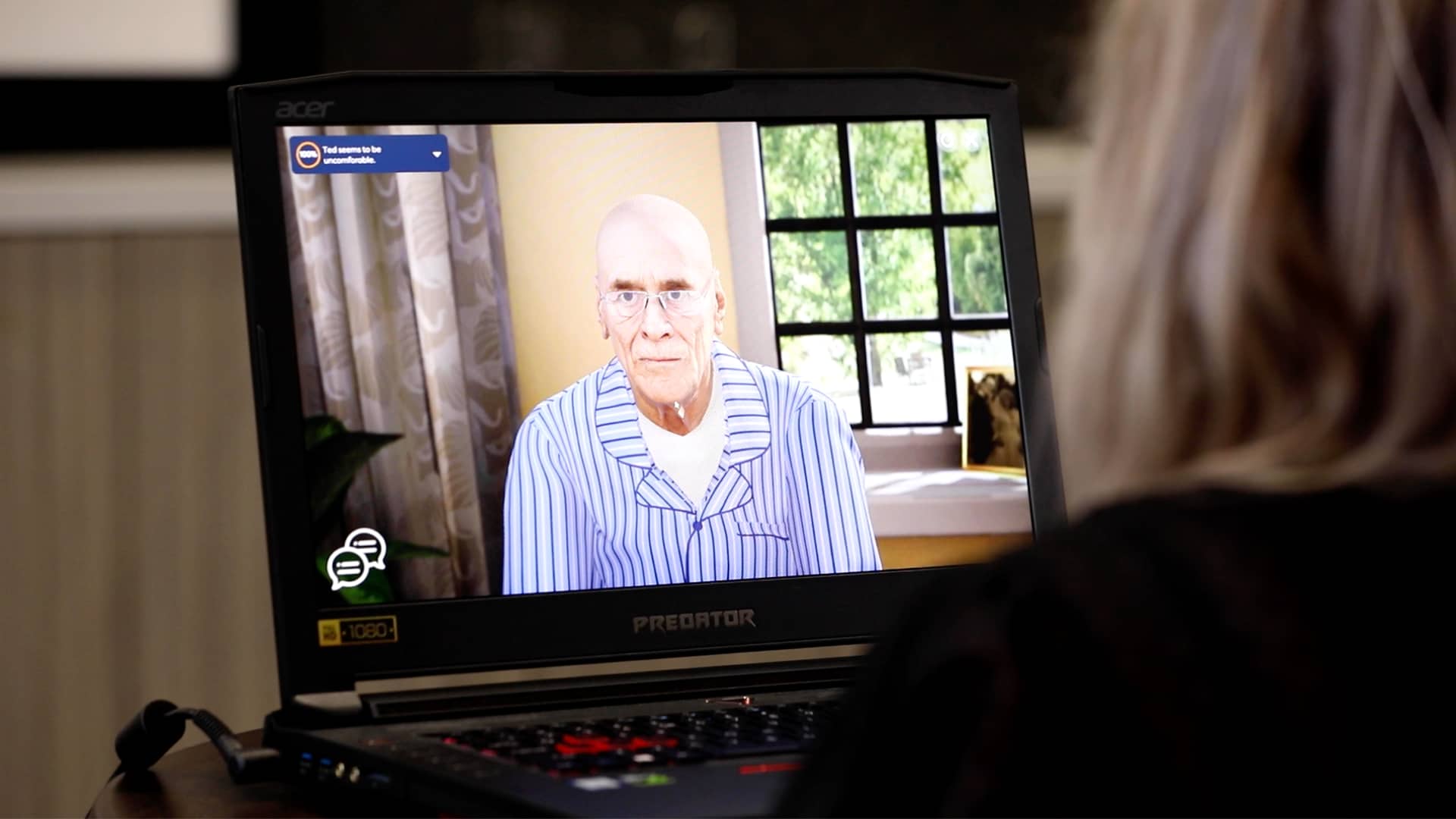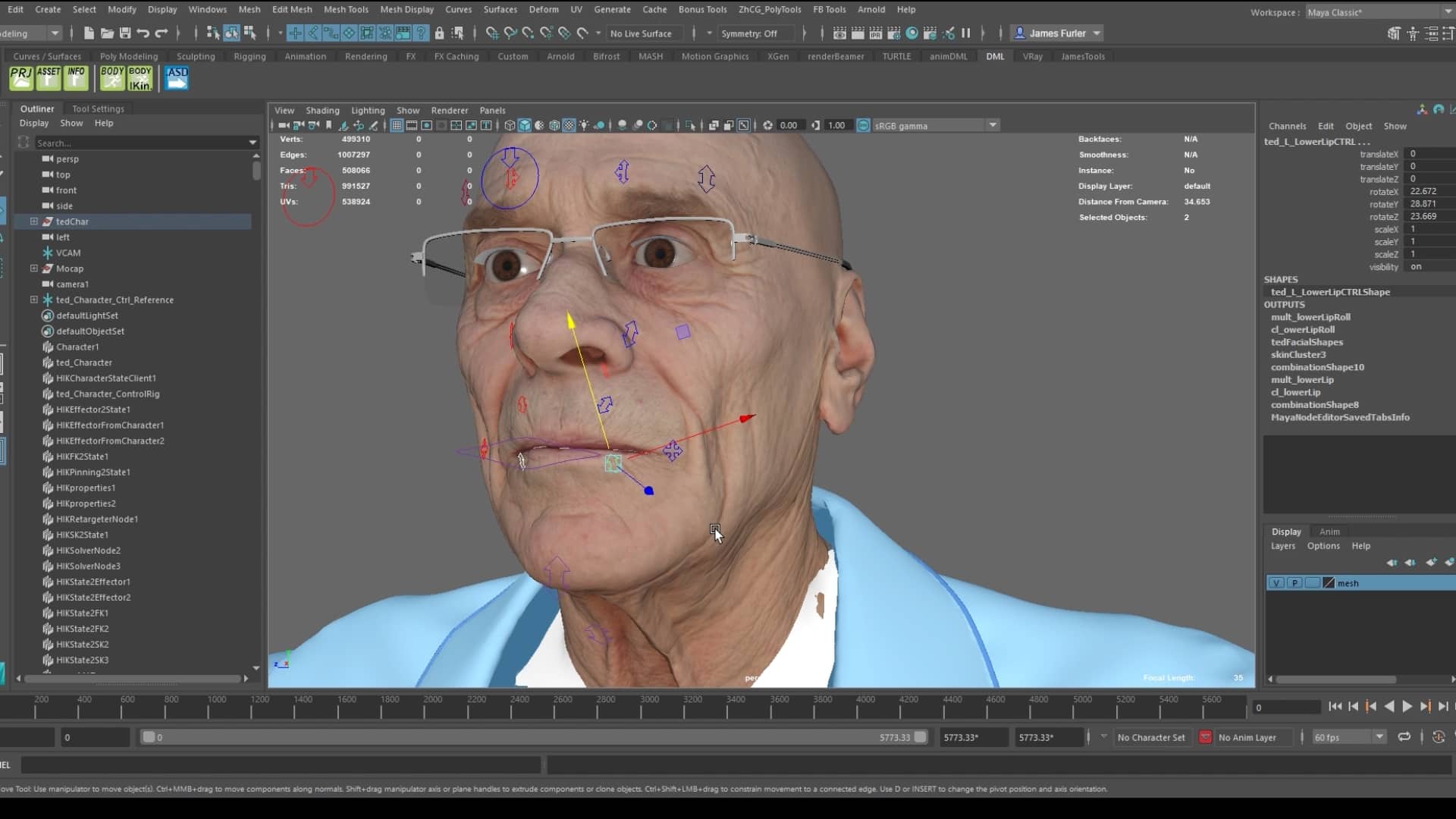Australian AI bot aims to help us better understand individuals with dementia
Dementia Australia and Deakin University have launched an AI bot with dementia to help train carers to better help humans with the disease.

Often when we read about AI, it’s relating to ways that AI is gradually, if rather painfully improving its ways of understanding the world – although bias is still an issue. Talk to anyone about AI, and they’ll either start to lean on the classic trolley problem, or envisage a Terminator-style world ruled by sentient computers.
AI doesn’t have to be just those kinds of challenging scenarios, however. What if you could build an AI to help instruct human beings dealing with one of the most stressful disease impacts that a very large number of us encounter?
That’s just what a team from Dementia Australia's Centre for Dementia Learning and Deakin University’s Applied Artificial Intelligence Institute have done, developing a world’s first AI called Talk With Ted.
Ted isn’t unique in that he wears pyjamas (although that is rather different) or for the quality of his text to speech for that matter.
What makes Ted unique is that Ted is an AI with dementia.
This isn’t some science fiction virus case, but a deliberate programming decision made by Dementia Australia to make Ted a tool to help train care workers to better deal with the challenging scenarios when dealing with a person with a dementia diagnosis.
It’s an increasing issue, with an estimated half a million Australians living with dementia right now, and a projected number of some 1.1 million by 2058 likely to be diagnosed.
There’s a common misperception that dementia diagnoses are the province of the very elderly, but it’s a complex affliction that can also affect those under the age of 65, with around 7% of Australians with a dementia diagnosis diagnosed with younger onset dementia.
The core idea here is that the Talk With Ted package allows care workers to learn through trial and error on an AI that can be endlessly reset, rather than a person where the wrong move could lead to increased stress and tension for the individual.
I was able to chat to Dementia Australia CEO Maree McCabe for the Vertical Hold podcast ahead of the release of Talks With Ted.
McCabe is particularly enthusiastic about Ted, noting "he’s a world first in dementia education. One of the things that's so fabulous about this is that people can really push the boundaries in a safe environment and to test out their communication skills."
"We're often fearful of getting things wrong," says McCabe. "People often say, ‘oh look, I'm worried about saying the wrong thing. It's designed to be a laboratory where people can test these skills and improve their skills and leave with much better understanding about how best to communicate with people living with dementia."

Ted isn’t just a voice, having been extensively 3D modelled at Deakin University over three years using motion capture and Maya to create an entire virtual person with accurate facial expressions whether thinking, laughing or becoming irritated with their carer.
Indeed, that emotional bond with Ted is a core part of the way he’s been designed to operate, and this was something that took McCabe rather by surprise.
"I was really surprised how connected I felt to Ted when I was watching him," she said. "I thought – 'oh my god!' and I started to have emotional responses and I thought this is really amazing. The visual element is really important and it really enhances the experience overall."
Right now, the core experience in Talk With Ted revolves around a shower scenario, quite deliberately as this can be a challenging experience for those involved with a dementia diagnosis individual, but like any other AI, McCabe sees there’s scope for Ted to expand his repertoire.
"The fantastic thing we can do is develop lots of different scenarios. The scenarios that people are most challenged by. We can add to the suite of options for Ted to learn."
As the concept is designed for training carers, it isn't an free-to-use tool. But you can sign up to Talk With Ted at $99 for a one hour session.
Byteside Newsletter
Join the newsletter to receive the latest updates in your inbox.




